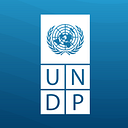How civic activists in eastern Ukraine are overcoming the challenges of the COVID-19 pandemic
The coronavirus crisis has changed the way people work across the country, including those involved in civil society organizations. We spoke to Svitlana Tkachenko, the head of the CSO Access Point, to find out how the pandemic has affected public activism in eastern Ukraine.
Not the first time
Tkachenko says that the coronavirus crisis forced her CSO to quickly switch its normal activities to online mode, but this isn’t the first time they’ve had to do this.
“Online tools became a part of our reality six years ago, when the armed conflict broke down in eastern Ukraine, and our lives changed once and for all,” she recalls.
“We clearly understood that we’d no longer be able to gather all community representatives of Donetsk and Luhansk oblasts for training in Donetsk: there were checkpoints between the cities, and every trip would put people in danger. So, in the spring of 2014, for the first time, we went completely online: meetings, conferences, meetings of contests commissions and — our very first webinar.”
When the team left Donetsk, they lived in different cities of Ukraine for some time. They weren’t planning to stop their work, so they had to master cloud services, working with video, Google documents and the basics of digital security, etc.
Online tools have not only helped to attract the support of an even larger audience, but also allowed the CSO to confidently overcome the new challenges imposed by the COVID-19 outbreak. Thanks to this experience, public activists have coped with the stress and psychological pressure of the pandemic, and actively continued their work under conditions of self-isolation.
It’s important for people to know that their rights and freedoms aren’t being violated
During quarantine, there is a significant risk that local government activities may become less transparent and public, as community residents won’t be able to physically participate in meetings, public hearings or consultations due to quarantine restrictions.
Thanks to UNDP support, Tkachenko’s CSO monitors all available tools to maximize community involvement in community decision-making, and is working to develop new ones.
In 2019, Access Point, with the support of UNDP under the UN Recovery and Peacebuilding Programme, implemented two projects: “Democracy for the People” and “Through Public Participation to Community Governance.” The latter project is still going on today.
“The Democracy for the People” project, implemented with funds provided by the governments of Denmark, Switzerland and Sweden, was aimed at stimulating the active participation of citizens in local government, and creating the appropriate mechanisms for this. The project team analysed the tools of local democracy in target communities, and organized an informational and educational campaign so that residents could influence decision-making in their own community.
Currently, the crisis situation of the pandemic has only increased the demand for the use of tools for the electronic participation of citizens in decision-making.
“We’re constantly receiving inquiries from both local governments and residents about how community governance should be organized during the crisis, so that citizens’ rights aren’t violated. In particular, what tools of involvement need to be added or improved,” Tkachenko says.
“In this difficult time, it’s important for people to know that their rights and freedoms aren’t being violated, and that they will certainly be able to take part in resolving issues that are important to their communities.”
Helping those who need it the most
The project “Through Public Participation to Community Governance”, being implemented with the financial support of the European Union, is actively underway, even in quarantine. Activists seek to encourage citizen participation in local government and involve vulnerable groups in decision-making. This is all possible thanks to fruitful cooperation with local activists in the target communities.
“Quarantine affected our plans, and we had to change the format of their implementation,” says Tkachenko.
“However, including vulnerable groups in our activities is extremely important, as people need to know that they are cared for and supported. We have to help those who need it the most.”
“For example, in one community, we are working to ensure that internally displaced people can be directly involved in decision-making at the community level. In fact, they have been full-fledged residents for six years now, and we cannot ignore their opinion.”
At the time when access to local government offices is limited, the use of local democracy tools can ensure the real participation of all citizens in the process of making relevant decisions on the ground.
Distance no obstacle
Now the team is already working on creating projects in virtual space. The use of online technology has made it possible to remain active in times of crisis, and distances are no longer an excuse for activists to stop or slow down.
“Any new challenges are an opportunity for development,” says Tkachenko.
“The most important thing is to be ready to accept it. Now is a good time to master new technologies and use them in the activities of civil society organizations, local authorities, and business.”
Background
The United Nations Recovery and Peacebuilding Programme (UN RPP) is being implemented by four United Nations agencies: the United Nations Development Programme (UNDP), the UN Entity for Gender Equality and the Empowerment of Women (UN Women), the United Nations Population Fund (UNFPA) and the Food and Agriculture Organization of the United Nations (FAO).
The programme is supported by twelve international partners: the European Union, the European Investment Bank and the governments of Canada, Denmark, Germany, Japan, the Netherlands, Norway, Poland, Sweden, Switzerland and the UK.
Photo credit: Vitalii Shevelev/ UNDP in Ukraine
